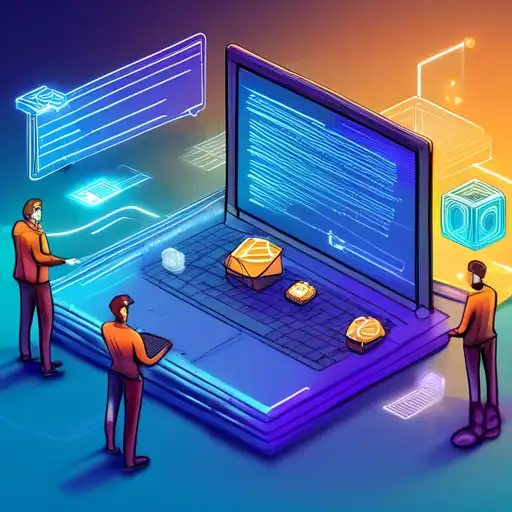Introduction to Smart Contracts
Smart contracts represent a pivotal innovation in blockchain technology, automating agreements without the need for intermediaries. These self-executing contracts with the terms of the agreement directly written into code have revolutionized how we think about trust and transactions in the digital age.
How Smart Contracts Work
At their core, smart contracts are programs stored on a blockchain that run when predetermined conditions are met. They typically are used to automate the execution of an agreement so that all participants can be immediately certain of the outcome, without any intermediary’s involvement or time loss.
The Benefits of Smart Contracts
Smart contracts offer numerous advantages, including but not limited to:
- Autonomy: Eliminates the need for intermediaries.
- Trust: Contracts are encrypted and distributed across the blockchain.
- Backup: Every node on the network has a copy of all contracts.
- Safety: Cryptography keeps documents safe from infiltration.
- Speed: Automates tasks that are typically manual.
- Savings: Reduces costs by cutting out middlemen.
Challenges and Considerations
Despite their potential, smart contracts are not without challenges. Issues such as legal status, security vulnerabilities, and the complexity of coding can pose significant hurdles. It's essential for participants to understand these limitations before engaging with smart contracts.
Real-World Applications
From finance to real estate, smart contracts are finding applications across various sectors. They are particularly transformative in areas requiring high levels of trust and transparency, such as supply chain management and voting systems.
Future of Smart Contracts
As blockchain technology continues to evolve, the potential for smart contracts expands. Innovations in artificial intelligence and Internet of Things could further enhance their functionality, making them even more integral to our digital lives.
Conclusion
Smart contracts are a cornerstone of blockchain technology, offering a secure, efficient, and transparent way to conduct transactions. While challenges remain, their potential to disrupt traditional industries is undeniable. As we move forward, the continued development and adoption of smart contracts will undoubtedly play a critical role in shaping the future of digital transactions.
